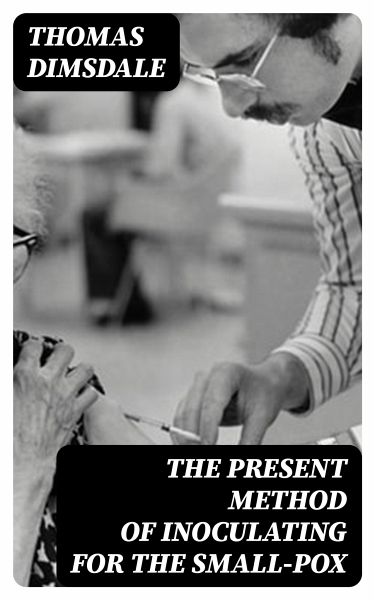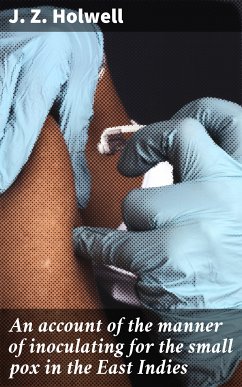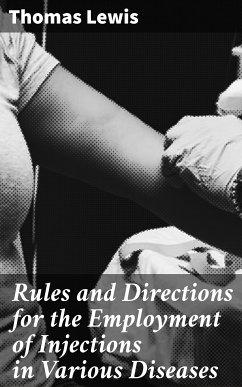
The Present Method of Inoculating for the Small-Pox (eBook, ePUB)
Sofort per Download lieferbar
0,49 €
inkl. MwSt.
Weitere Ausgaben:

PAYBACK Punkte
0 °P sammeln!
In "The Present Method of Inoculating for the Small-Pox," Thomas Dimsdale presents a groundbreaking treatise that details the practice and efficacy of smallpox inoculation in the 18th century. Written with an analytical rigor typical of the Age of Enlightenment, Dimsdale combines empirical observation with a narrative style that conveys both the clinical aspects of inoculation and the socio-political implications of adopting this medical practice. The text not only provides a thorough examination of variolation, illustrating its techniques and outcomes, but also engages with contemporary debat...
In "The Present Method of Inoculating for the Small-Pox," Thomas Dimsdale presents a groundbreaking treatise that details the practice and efficacy of smallpox inoculation in the 18th century. Written with an analytical rigor typical of the Age of Enlightenment, Dimsdale combines empirical observation with a narrative style that conveys both the clinical aspects of inoculation and the socio-political implications of adopting this medical practice. The text not only provides a thorough examination of variolation, illustrating its techniques and outcomes, but also engages with contemporary debates about public health and medical ethics, situating itself amidst the burgeoning field of immunology that marked the era's scientific advancements. Thomas Dimsdale, an English physician, was at the forefront of this innovative practice and personally undertook its application, which undoubtedly shaped his perspective. His firsthand experience with inoculating patients, particularly in the context of a smallpox epidemic, endowed him with both credibility and urgency in communicating the benefits of inoculation. Dimsdale's work is reflective of his broader commitment to improving public health and the welfare of his community, revealing the influence of Enlightenment thought on his medical practice. This book is essential for anyone interested in the history of medicine, public health policy, or the development of immunological practices. Dimsdale's eloquent advocacy for inoculation not only paved the way for future medical interventions but also invites readers to consider the ethical dimensions of medical innovation. Whether one is a medical professional, historian, or lay reader, Dimsdale's compelling narrative and insights make this work a crucial addition to the literature on early vaccination efforts.
Dieser Download kann aus rechtlichen Gründen nur mit Rechnungsadresse in A, B, BG, CY, CZ, D, DK, EW, E, FIN, F, GR, H, IRL, I, LT, L, LR, M, NL, PL, P, R, S, SLO, SK ausgeliefert werden.













